I was a college student when I first heard drummer Roy Haynes. I was sitting in the music archive in the basement of Meyer Library on the Stanford campus—where I listened to jazz records on headphones while doing homework. That was a daily ritual for me. One evening, I heard a bootleg album featuring bebop legends Charlie Parker (1920-1955) and Dizzy Gillespie (1917-1993). On this recording, made from a live radio broadcast, emcee ‘Symphony’ Sid Torin introduces the band. He refers to the drummer as “Sergeant Roy Haynes.” I only later learned that this nickname was a joke—Haynes had actually avoided service in both World War II and Korea with medical exemptions. His friends kidded him by assigning various military rankings to their non-commissioned drummer. Years later, Haynes was still living with the fallout from the joke. Fans all over the world would ask him about his exploits as a solider. But I can attest that Haynes must have been in good health, despite these medical exemptions. He will soon celebrate his 100th birthday—more than 80 years after getting his draft notice for World War II. If you want to support my work, please take out a premium subscription (just $6 per month).I’ve also measured Haynes’s robust vital signs from watching him perform live—most recently when he was in his early 90s, and playing like a firebrand. He was living up to his other nickname—no, not sergeant—but “Snap, Crackle.” The first time I saw him in concert was alongside Chick Corea in the 1980s. Even back then, I admired this “old man” for playing so vibrantly with the younger Corea. How little I knew. As it turns out, Chick Corea is now dead—as are most of the other legends who hired Roy Haynes for their bands. These include John Coltrane, Lester Young, Miles Davis, Thelonious Monk, Sarah Vaughan, Dave Brubeck, Stan Getz, Bud Powell, Eric Dolphy, McCoy Tyner, Art Pepper, Freddie Hubbard, Michel Petrucciani, and many, many others. Even the Meyer Library, where I first listened to that record featuring Haynes with Parker and Gillespie, has been torn down. Only Sergeant Haynes survives. The ultimate irony is that his 95th birthday performance was cancelled for a medical reason—but it was the COVID pandemic for us that stopped. Haynes himself was spry and healthy. But here he is performing at the Blue Note in NY shortly before lockdown. He was 94 years old when he did this! 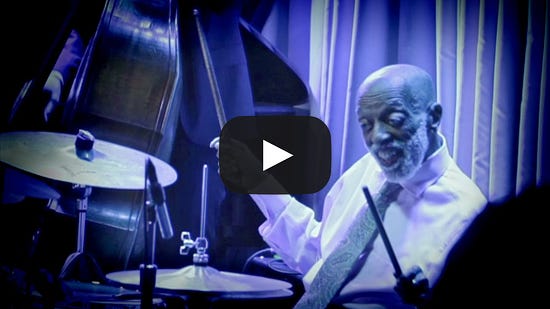 But Roy Haynes isn’t an isolated example. In fact, I’ve started to wonder if drummers live longer than the rest of us. Not long ago, I read a news story bout a drummer named Roger Wonson, who gigged on his 100th birthday with his band Voltage. He started playing the instrument at age 12—so he had been drumming for 88 years! Or consider this drummer—sorry, I don’t know his name—who still picks up the sticks at age 103. But all that is nothing compared to drummer Dick Cogdal, who celebrated his 107th birthday in April 2024. He marked the occasion by singing a song for the Marching Illini, the band for which he drummed back in the 1930s.
Drummer Viola Smith also survived to 107. She caused quite a sensation, also back in the 1930s. Just watch and see: 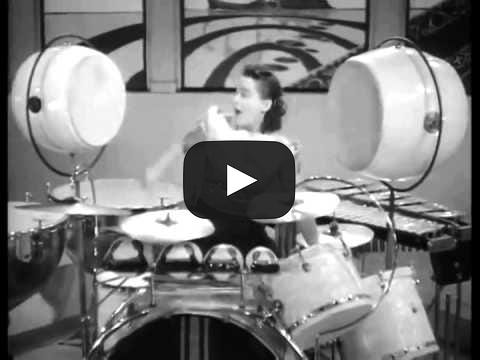 She was still gigging after the age of 100. This isn’t just coincidence. There’s good reason for drummers to live long—first of all, they get a great cardiovascular workout every time they perform, I’m told that just one hour of drumming burns up 600 calories. Maybe that’s why drummers always look so slim and trim. Of course, other musicians get a workout on the bandstand. But few have to deal with physical demands so prolonged and intense as the drummer. In fact, I fear that wind players sometimes pay a price for the oxygen depletion involved in their craft—and especially saxophonists who specialize in circular breathing, a technique that allows them to play for long stretches without pausing to inhale. More than a few of the most skilled “circular breathers” died in their 30s or 40s. Drummers, in contrast, get the benefits of a cardio workout without that risk. And that’s just a start. Dr. Barry Bittman learned that playing in a drum circle changes your body chemistry and strengthens your immune system. That might be why drumming has been a key part of healing rituals since antiquity—and probably even going back into prehistoric times. The prominence of percussion in these settings is so extreme that scientist Andrew Neher proposed, back in 1962, that it was chosen for its physiological impact on the human body. He drew heavily on both anthropological literature and lab research—reaching the conclusion that “unusual behavior observed in drum ceremonies is mainly the result of rhythmic drumming which affects the central nervous system.” Dr. Felicitas Goodman documented even more impressive effects in experiments conducted with the University of Munich and the University of Vienna. She learned
Here’s the most important part of the story: You don’t need to be a drummer to get some of these health improvements. Even listeners enjoy physiological benefits in response to certain rhythms in certain contexts. We still don’t have a full scientific grasp of how pulses and vibrations impact health and longevity—scientists prefer to study pharmaceutical agents and surgical interventions. But it’s worth noting that pioneering research by Hans Jenny demonstrates clearly that music and other rhythmic sounds can create order and symmetry in physical objects.  Jenny invented a whole new scientific discipline focused on this field of inquiry—which he called Cymatics. But his work has never been fully embraced by universities and leading scientific institutions. I often wonder why, and can only conclude that it’s too hard to make money off rhythm. Just imagine the profits they would lose if you could treat health issues with something as inexpensive as a drum, But that shouldn’t prevent you from drawing on the constitutive power of rhythm in your own life and daily rituals. Maybe that regimen can get some of us to the ripe age of one hundred. In the meantime, let’s celebrate the drum pioneers who already show how it’s done. You're currently a free subscriber to The Honest Broker. For the full experience, upgrade your subscription. |
Search thousands of free JavaScript snippets that you can quickly copy and paste into your web pages. Get free JavaScript tutorials, references, code, menus, calendars, popup windows, games, and much more.
Do Drummers Live Longer?
Subscribe to:
Post Comments (Atom)
When Bad People Make Good Art
I offer six guidelines on cancel culture ͏ ͏ ͏ ͏ ͏ ͏ ͏ ͏ ͏ ͏ ͏ ͏ ͏ ͏ ͏...
-
code.gs // 1. Enter sheet name where data is to be written below var SHEET_NAME = "Sheet1" ; // 2. Run > setup // // 3....
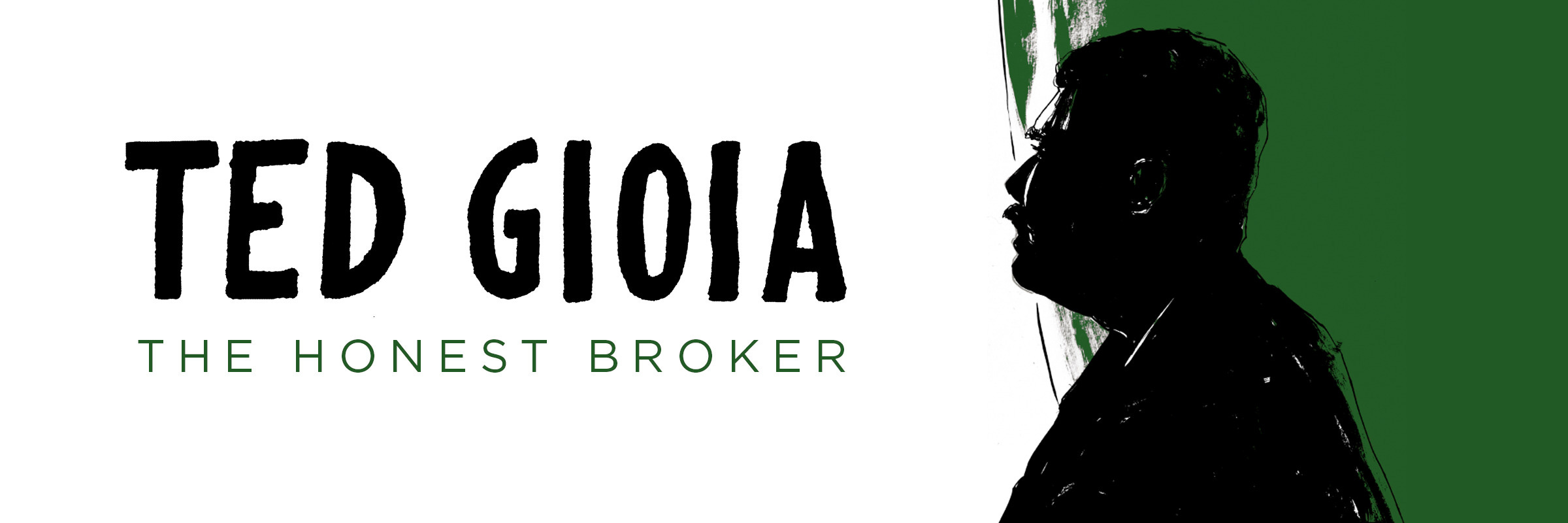
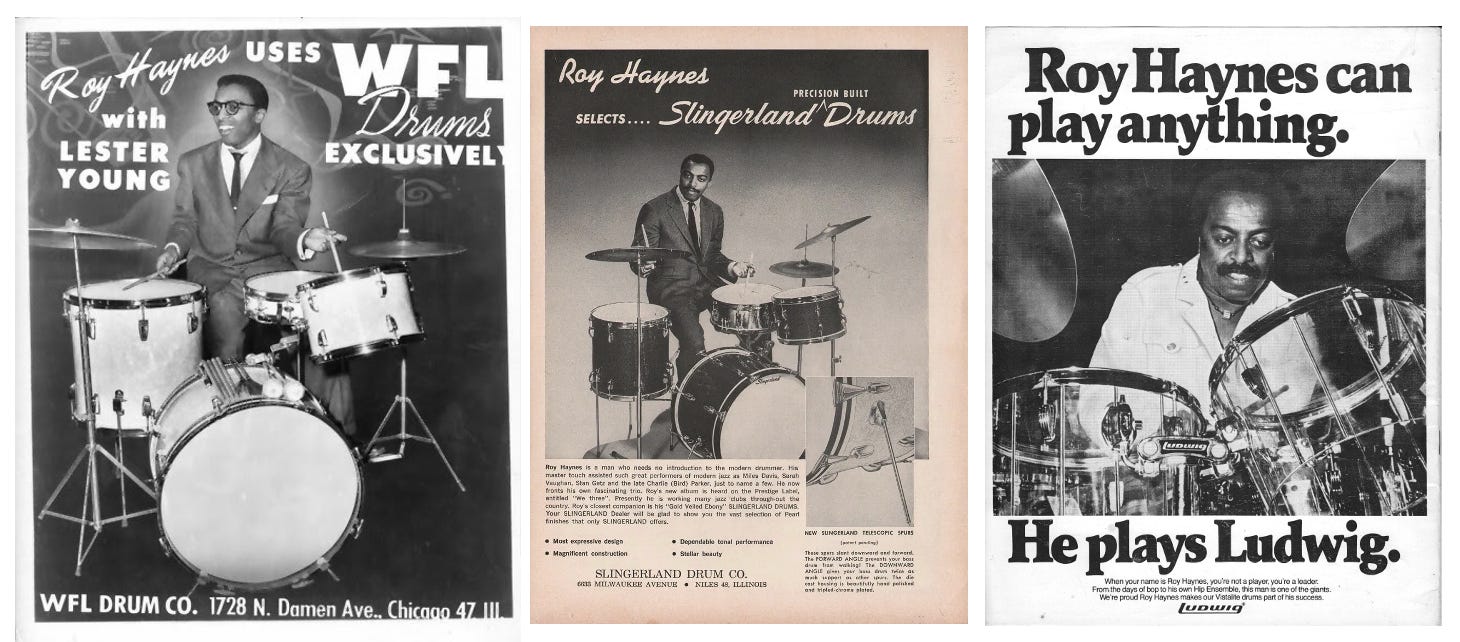
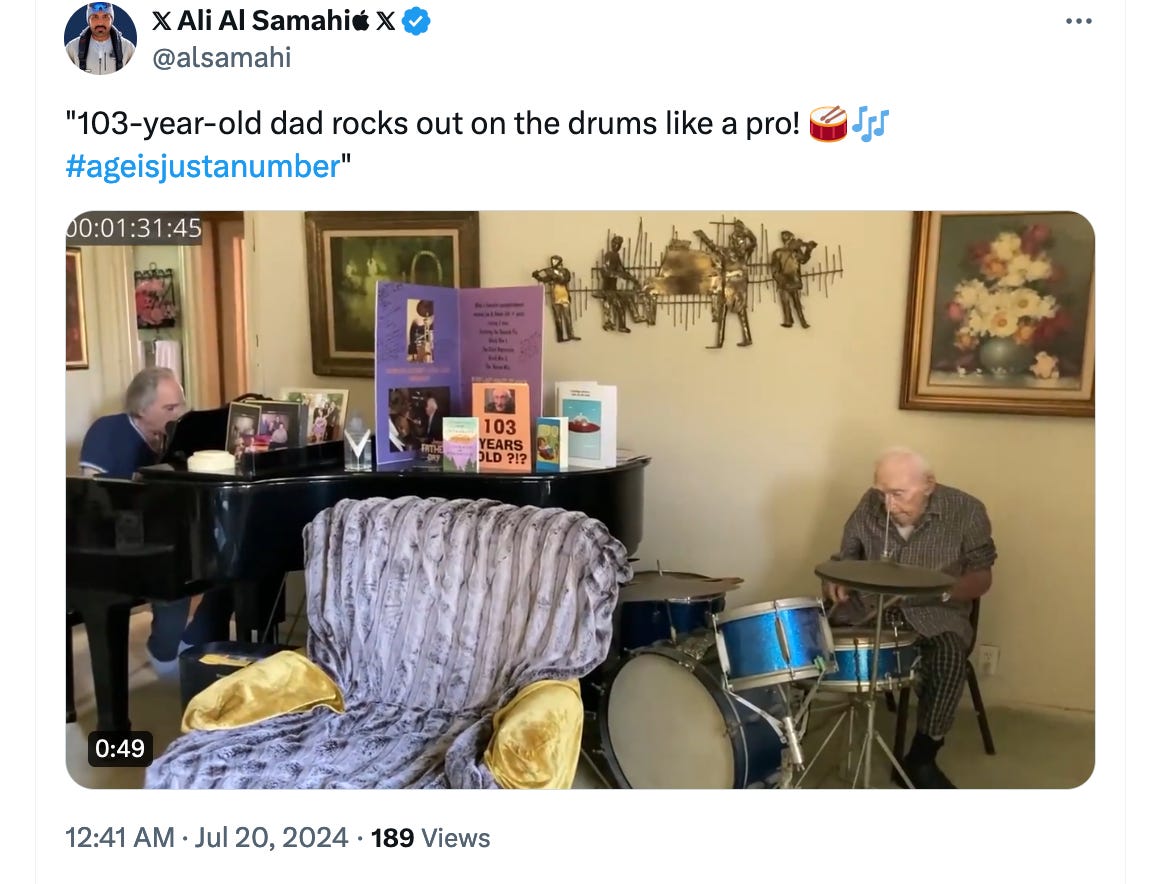
No comments:
Post a Comment